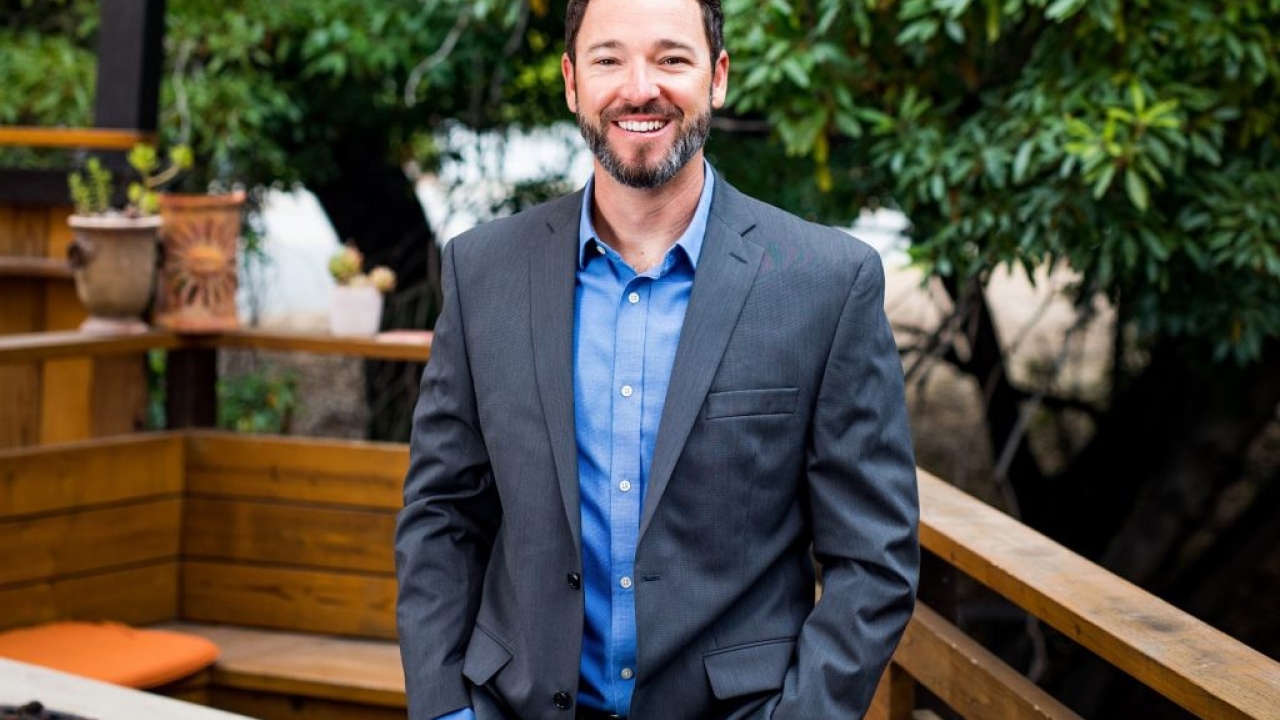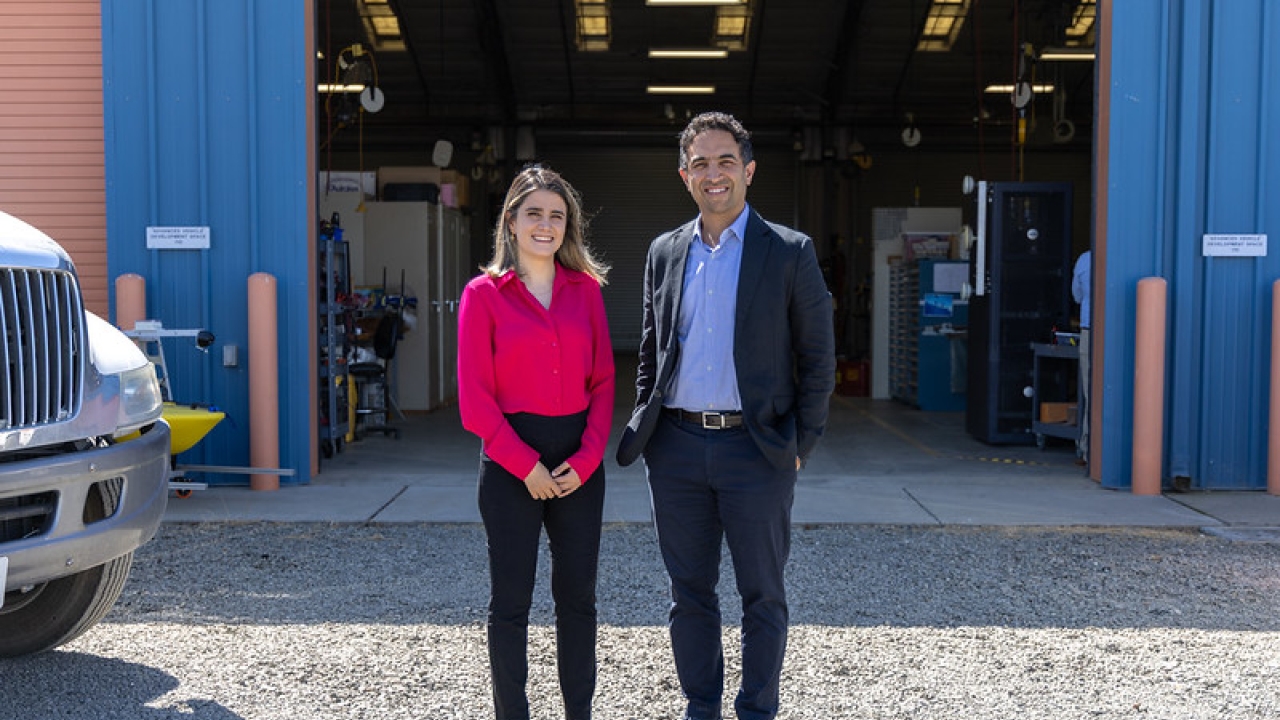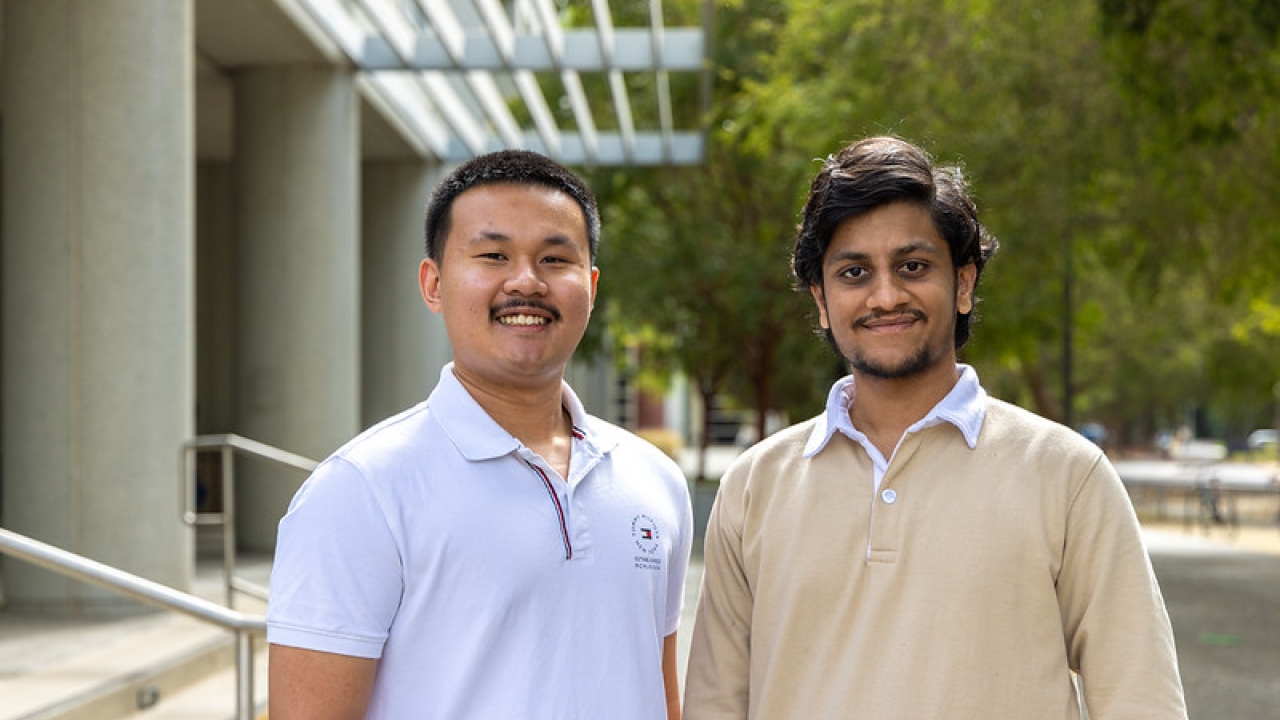
Engineering Alumni Spotlight: Water Pioneer Jeffery Szytel, ’98
Jeffery Szytel (’98, civil and environmental engineering), is founder and CEO of Water Systems Consulting, Inc. (WSC), a full service civil and environmental engineering consulting firm that specializes in providing innovative One Water solutions to public agency clients throughout the western United States. The One Water framework is a collaborative cross-sector platform that brings together planners, community leaders, environmental advocates, business leaders and researchers aiming to make water management in the U.S. more sustainable.
Before founding WSC, Jeffery earned a master’s degree in civil and environmental engineering in 2001 and a MBA in 2005 from UCLA. In this Engineering Alumni Spotlight, he discusses how he helps clients invest in water sustainability, and how his time at UC Davis helps him make lasting impacts on clients and their communities.
What does your typical day look like?
It’s hard to describe what’s typical because there is a lot of variety in my days. One constant is that I work to help the people around me succeed. My days typically include multiple virtual and in-person collaboration sessions, where I am working with diverse teams of my staff and clients to imagine, explore, create and develop sustainable solutions to complex water challenges. I like facilitating working groups with leaders in the water industry, am active on several advisory boards and panels, and dedicate time to give back to the community and the water industry through speaking engagements, various volunteer efforts and charitable giving.
I am a pilot and will often fly from our home office in San Luis Obispo to collaborate with teams throughout the western U.S. WSC has offices in California, Oregon and now Washington. I am usually back home for dinner, where I enjoy time with my wife Sasha (’98, neurobiology, physiology and behavior), who is a pediatrician, and our four young kids. At the end of the day, I am usually exhausted, but satisfied, energized, and inspired to do it again the next day.
What challenges do you face in water sustainability?
As a society, and within our industry, water scarcity is forcing our communities to rethink how we approach water reliability and resilience. So that is a big driver for the work we do. We apply a One Water framework, which encompasses watershed-scale thinking, community stewardship, and building thriving economies to support a healthy environment. It is a broad perspective about water resources management that has been missing in the industry.
Another challenge the water industry struggles with is creating meaningful and lasting connections between the technical details of a project and the benefits and values the project brings to the communities it serves. I am an engineer, and I love the complexities associated with the technical side of my work. However, I have learned the importance of strategic communications and making connections with people, both within project teams delivering projects, as well as the communities that ultimately benefit from these projects to build and sustain long-term value.
What helps set you apart from others trying to address these challenges?
WSC is a next-generation consulting firm in that we are building upon the tradition and successes of the past but are not tied down by the legacy of our industry. We ask these basic questions: “what does sustainability look like, and what needs to be done to achieve it?” Some people start with describing the constraints. I usually start with imagining the possibilities.
For example, for the water resources in south San Luis Obispo County, one element of sustainability is creating the ability to recover and reuse our wastewater effluent. Instead of discharging treated water into the ocean, we can use this water to recharge the coastal groundwater basin. There are elements of sustainability we can achieve, and we can help our clients down that road—it is the start of an important journey.
WSC puts people and relationships first, and the resilient bonds we foster lead to amazing productivity and results, based on trust and shared accomplishment. It seems so simple and straightforward, but it has been missing in how this industry has evolved. We embrace it as part of the DNA of our company culture.
How did your time at UC Davis prepare you for your career?
UC Davis is an incredible university, and an amazing community. For me, it was the perfect balance of academics, social culture, and passion for life. I met my wife of 18 years at UC Davis and made many lifelong friends. The academic foundation that I gained while at UC Davis supports my understanding, insight, and decision-making every day. The passion and dedication of my professors at UC Davis inspired me to embrace curiosity, push the limits of my understanding, and seek the underlying truths that form the basis for sustainable engineering solutions.
The UC Davis community taught me to seek the best in people, enjoy my time on this planet, give it my all, and appreciate the natural world around me. I came out of school with a strong knowledge of the fundamentals of water engineering, and because of the writing and communications courses that were part of my curriculum, I felt well-prepared to effectively communicate my work. In time, I have come to appreciate the emphasis that UC Davis placed on building a strong understanding of the theory and science that underlies the practice of engineering and feel that this understanding helps distinguish UC Davis grads from their peers.
Did you have a favorite instructor in the College of Engineering?
I had several. My first course in environmental engineering was with George Tchobanoglous during the first quarter of my freshman year. He presented engineering in an approachable way and showed me how creative problem-solving is just a logical extension of curiosity and common sense. He also engrained in me the importance of clear presentation and effectively communicating my work and ideas.
Tom Young brought ease and clarity to water chemistry and water treatment theory and design. He was methodical and thorough, and always took time to listen to my questions and provide explanations that solidified my understanding. In my senior year, I took a water resources engineering course with Jay Lund, which gave me a broad understanding of California water. By the time I took his course, I already knew I wanted to pursue a career in water, but his class was like rocket fuel for my passion and launched me into a career that I still love today.
What was your most memorable moment at UC Davis?
There were so many memorable moments. Meeting my wife freshman year. She was literally “the girl next door” in the Tercero dorms. Living with my best friends in a shared house. 8 AM physics lectures. Ski or Snowboard trips to Tahoe. Whitewater rafting with Outdoor Adventures and biking in the rain with the “freshman stripe.” Surveying “the mound.” And who could forget the house parties?
I haven’t been back to Davis in ten years or so. Now that our kids are old enough to appreciate it, my wife and I look forward to introducing them to the place that made such a positive difference in our lives. I honestly hope that my kids end up at UC Davis someday. It is hard to imagine a better place to go to school.
Building upon a long-standing tradition of public service, the UC Davis College of Engineering has a visionary plan for the future in which innovative research and quality education will make life better for everyone. Do you have a story to share? Let us know.




